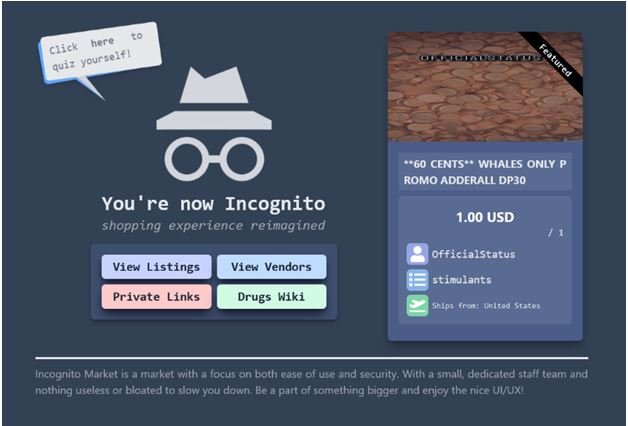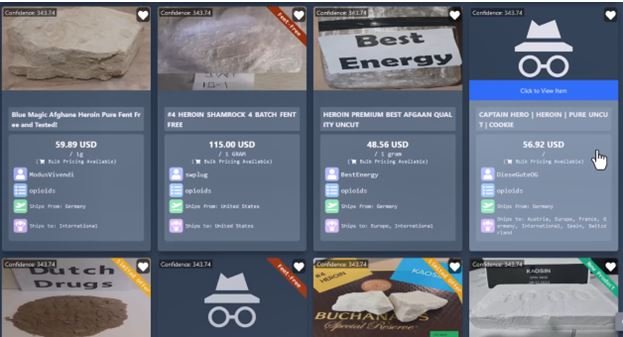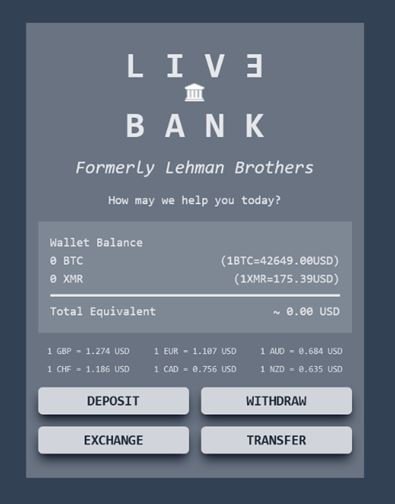The Cincinnati Field Office of the FBI, announced today the arrest of RUI-SIANG LIN, a/k/a “Ruisiang Lin,” a/k/a “林睿庠,” a/k/a “Pharoah,” a/k/a “faro,”in connection with his operation and ownership of “Incognito Market,” an online dark web narcotics marketplace that enabled its users to buy and sell illegal narcotics anonymously around the world.
LIN was arrested at John F. Kennedy Airport on May 18, 2024, and will be presented in Manhattan federal court before U.S. Magistrate Judge Willis later today.
He said: “Drug traffickers who think they can operate outside the law on the dark web are wrong. The long arm of the law extends to the dark web, and we will bring to justice those who try to hide their crimes there.”
As alleged, Rui-Siang Lin’s brazen operation resulted in the illicit sale of over $100 million in narcotics, including those that were mislabeled and later found toinclude deadly fentanyl.
Incognito Market was an online narcotics bazaar that existed on the dark web. Incognito Market formed in October 2020. Since that time, and through its
closing in March 2024, Incognito Market sold more than $100 million of narcotics — including hundreds of kilograms of cocaine and methamphetamines.
Incognito Market was available globally to anyone with internet access and could be accessed using the Tor web browser on the “dark web” or “darknet.”
Incognito Market was designed to foster seamless narcotics transactions across the internet and across the world and incorporated many features of
legitimate e-commerce sites such as branding, advertising, and customer service. Upon visiting the site, users were met by a splash page and graphic
interface, which is picture below:
After logging in with a unique username and password, users were able to search thousands of listings for narcotics of their choice. Incognito Market
sold illegal narcotics and misbranded prescription medication, including, heroin, cocaine, LSD, MDMA, oxycodone, methamphetamines, ketamine,
and alprazolam. An example of listings on Incognito market is below:
Listings included offerings of prescription medication that was advertised as being authentic but was not. For example, in November 2023, an undercover
law enforcement agent received several tablets that purported to be oxycodone, which were purchased on Incognito Market. Testing on those tablets revealed that they were not authentic oxycodone at all and were, in fact, fentanyl pills.
Each listing on Incognito Market was sold by a particular vendor. To become an Incognito Market vendor, each vendor was required to register with
the site and pay an admission fee. In exchange for listing and selling narcotics as a vendor on Incognito Market, each vendor paid 5% of the purchase price of every narcotic sold to Incognito Market. That revenue funded Incognito Market’s operations, including paying “employee” salaries and for computer servers. LIN collected millions of dollars of profits from Incognito. To facilitate these financial transactions, Incognito Market had its own “bank,” which allowed its users to deposit cryptocurrency on the site into their own “bank accounts.” After a narcotics transaction was completed,
cryptocurrency from the buyer’s “bank account” was transferred to the seller’s “bank account,” less the 5% fee that Incognito collected. The bank
enabled buyers and sellers to stay anonymous from each other. The bank’s graphic interface is picture below:
RUI-SIANG LIN, 23, of Taiwan, is charged with one count of engaging in a continuing criminal enterprise, which carries a mandatory minimum sentence
of life in prison; one count of narcotics conspiracy, which carries a mandatory minimum sentence of 10 years in prison and a maximum potential sentence of life in prison; one count of money laundering, which carries a maximum potential sentence of 20 years in prison; and one count of conspiracy to sell adulterated and misbranded medication, which carries a maximum potential sentence of five years in prison.
The charges contained in the Indictment are merely accusations, and the defendant is presumed innocent unless and until proven guilty.
Sort: Trending


